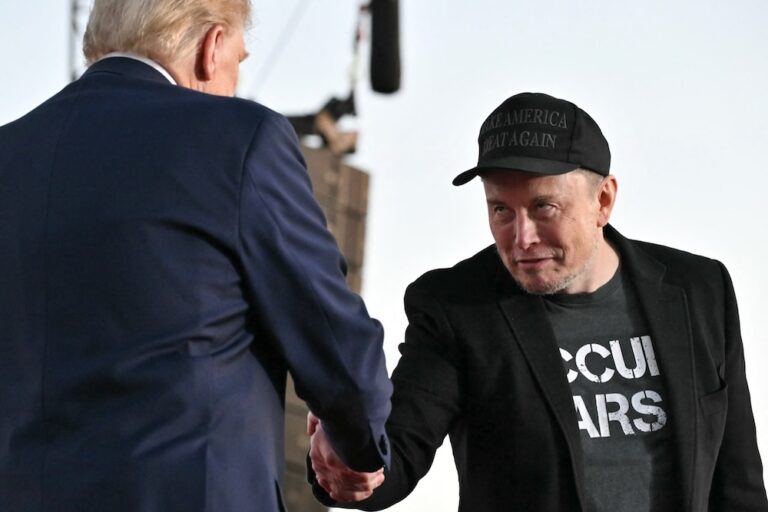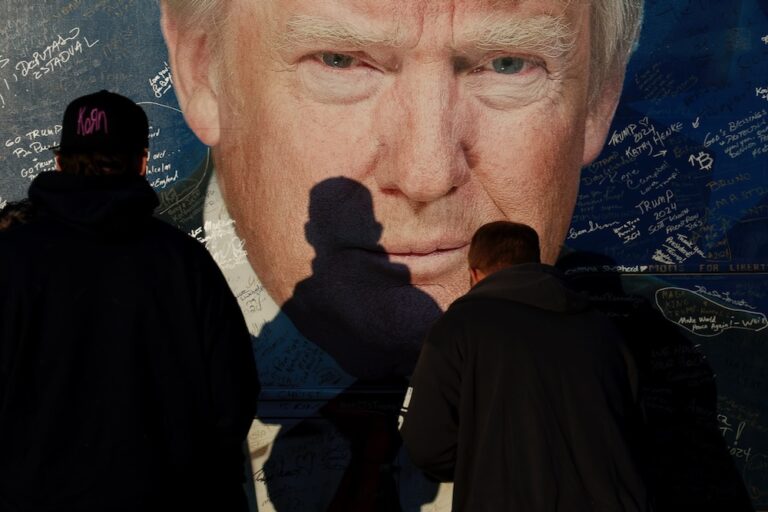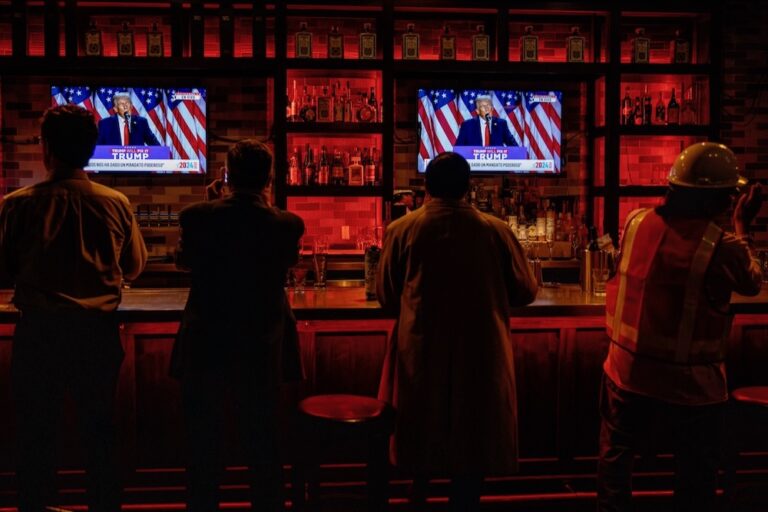(IAPA/IFEX) – The following is a 17 October 2001 IAPA report: Report on violations of press freedom in the United States MIAMI, Florida (October 17, 2001)-This is the full text of the United States report on violations of press freedom in that country adopted by the Inter American Press Association (IAPA) at its 57th General […]
(IAPA/IFEX) – The following is a 17 October 2001 IAPA report:
Report on violations of press freedom in the United States
MIAMI, Florida (October 17, 2001)-This is the full text of the United States report on violations of press freedom in that country adopted by the Inter American Press Association (IAPA) at its 57th General Assembly in Washington, D.C.:
In the aftermath of the September 11 terrorist attacks against the United States, there have been serious threats and concerns regarding the possibility of restrictions being imposed on the press.
A sinister new threat involves bio-terrorism by still-unknown groups or individuals against news organizations. One employee was killed and three – possibly eight – others were infected by anthrax at American Media, Inc. At NBC, one employee, and possibly a second, have been infected. And it appears that another case of infection occurred at the offices of ABC. The deadly bacteria were planted in powder form in mailed letters and handled by the affected employees, according to authorities.
Shortly after the New York and Pentagon attacks, State Department officials attempted to pressure the Voice of America (VOA), a government broadcasting group, not to air an interview with Mullah Mohammed Omar, the Afghan Taliban leader, thus interfering with the VOA’s editorial independence. Despite the pressure, VOA aired excerpts of the interview.
Later, the White House asked representatives of major televisions news networks not to broadcast in full prerecorded messages from terrorist Osama Bin Laden and his henchmen, in order to avoid frightening Americans and inadvertently relaying possible coded messages to other terrorists. The networks jointly agreed to limit such coverage. This self-censorship sends the wrong message to the Muslim nations about the values of openness and press freedom that the United States and its allies uphold and denies the American public the right to be fully informed.
An American freelance news photographer, William Biggart, was among the confirmed dead in the World Trade Center. Several other media workers were reported injured or missing. Biggart’s body was found on September 15 in the rubble, near the bodies of several firefighters. He had rushed to the scene with his camera shortly after hearing about the attacks.
In post-terrorist attack legislation, press organizations feared that Congress might clamp strong restrictions on privacy on the Internet by passing the proposed Combating Terrorism Act, which would permit law enforcement officials to install systems to monitor e-mail messages. Media groups also warned about a bill prohibiting the use of encrypted e-mail messages on grounds of national defense and security. Press freedom and civil liberties advocates feared that such legislation might infringe upon Internet users’ right to privacy and confidentiality.
It is still uncertain whether government officials will enforce a set of rules enacted during the Persian Gulf War that limited coverage and created press pools that at times kept many media groups from covering the war. While there was a sense that such rules would not be strictly enforced, defense officials cautioned government workers that they could face serious consequences if they leaked classified information endangering the lives of men and women in uniform.
Media organizations acknowledged that the press must balance national security with its duty to inform the public fully and accurately. Officials also implemented other security measures, such as restricting the flight of helicopters and small aircraft within city limits, thus affecting news coverage, closing some public records to the public and creating new statutory exemptions, and keeping other information from the public, including maps and blueprints of U.S. military bases and installations and other public buildings in the United States.
In a letter dated August 20, U.S. Attorney Mary Joe White wrote to Associated Press (AP) journalist John Solomon informing him that the U.S. Attorney’s Office had obtained records of both his incoming and outgoing telephone calls between May 2 and 7. The decision to subpoena the journalist ‘s telephone record, without even informing the journalist or AP and allowing them to contest it, was related to an article written by Solomon on May 4 in which he quoted unidentified law enforcement officers as saying that a government wiretap had recorded the conversation of a U.S. senator who was under investigation at the time. Under federal law, it is illegal for a law enforcement officer to disclose information obtained under a federal wiretap. News groups called such action government curtailment of press freedom.
In a letter to U.S. Attorney General John Ashcroft, AP president Louis Boccardi said: “There was no advance notice to the reporter or his company, depriving us of the legal right to oppose your intrusion before it occurred.” No evidence has been forthcoming from Justice that alternate methods for obtaining the information were tried and exhausted. “The guidelines contemplate that, except in the case of the most grave threat to an investigation, no such violation of reporter confidentiality would be countenanced.”
American freelance writer Vanessa Leggett has been held for nearly three months at a federal detention center in Texas for refusing to hand over confidential information, requested by a grand jury convened by the federal prosecutor’s office, related to material she was collecting for the publication of a book on a high-profile murder in Houston. Several media organizations petitioned the federal court that found her in contempt for her refusal and sent letters to government officials calling for her release, invoking a qualified privilege under the First Amendment. Leggett, who was jailed on July 20, could be held in custody for up to 18 months if she continues to refuse to hand over her notes. Recently, a panel of three judges of the 5th Circuit Court of Appeals in Texas denied her appeal to overturn the federal court contempt ruling on several grounds, including that it was unclear that she qualified as a journalist under the law. Media organizations feared the case could set a negative precedent.
In September, an Appellate Panel of Judges in Louisiana denied the petitions of several media organizations seeking to overturn a federal judge’s order that restricts contact with the jurors in a lawsuit involving the tire company Bridgestone/Firestone, Inc. Federal Judge Filemon Vera issued an order prohibiting individuals from contacting jurors in the case without submitting a written application and receiving specific approval of the court. The news organizations claimed that the order violated the First Amendment guarantees of press freedom and unobstructed access to information.
Other court decisions restricting the media’s newsgathering activities included the decision of a Florida court that kept the Sun-Sentinel, Fort Lauderdale, from obtaining the autopsy photographs of Dale Earnhardt, the race car driver killed during a competition in February. The Florida legislature approved a bill that made it a felony to release the records. News organizations claimed the bill went too far in protecting a family’s right to privacy by forcing anyone to get a judge’s permission before autopsy photographs could be viewed.
The publisher, David Carson, and editor, Ed Powers, of The New Observer, a monthly newspaper in Kansas City, were charged with criminal libel in March under the Kansas criminal libel statute and face several years’ imprisonment if convicted. First Amendment experts said that such a conviction would not, however, pass constitutional muster. At issue was publication by the newspaper of inaccurate information about the incumbent mayoral candidate in November 2000. The paper apologized for its mistake, but the libel charge went ahead.


